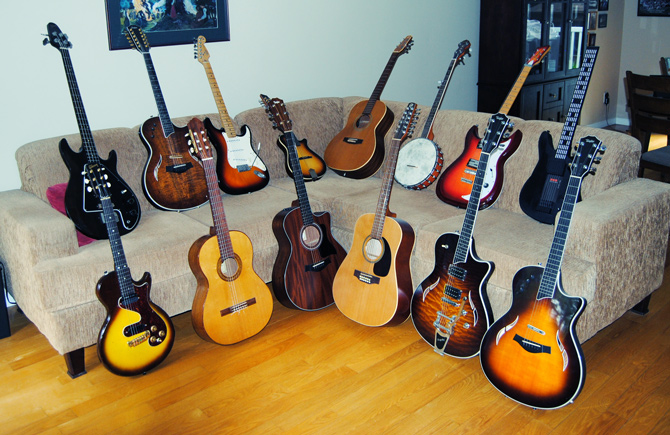In the 60s when I was learning to play the guitar, a great source of inspiration and material came from the traditional and Celtic music revival in Great Britain, lead by guitarists and singers like Davey Graham (1940-2008), Bert Jansch (1943-2011), Martin Carthy (b. 1941) and John Renbourn (1944-2015). Their influence was worldwide and inspired many musicians, like Dick Gaughan, a Scottish guitarist-composer. During his carreer, Gaughan has also been active as a record producer/engineer, MIDI programmer and orchestrator, composing music for films for the BBC and the Scottish Arts Council. He has also been the subject of three full BBC documentaries in the UK.
In the 70s, Gaughan joined the Celtic bands The Boys of the Lough and Five Hand Reel, spending a lot of time on the road away from his family. This lead to excessive consumption of alcohol and a generally unhealthy lifestyle which wore him down both physically and mentally. However, Gaughan eventually recuperated and in1981, he released “Handful of Earth”, a universally critically acclaimed album that was named folk album of the year and the greatest album of the decade by both media and critics alike. In my opinion, “Handful of Earth” was also a significant factor in the struggle towards Scottish independence.
“Handful of Earth” features a mixture of fiercely political and proud traditional songs, none more moving than “Now Westlin Winds”, which comes to us across an ocean of time spanning some 250 years. Robert Burns (1759-1796), the national poet of Scotland, wrote this poem for one of his first loves, Margaret Thompson (Peggy in the song), when he was only a treenager. Probably most known for his song “Auld Lang Syne”, Burns’ birthday (January 25) is celebrated all over the world as “Robbie Burns’ Day.”
Burns’ deep love of nature is obvious in “Now Westlin Winds”, as is his hatred for the hunt and the hunters, with references to slaughtering guns, murdering cries and gory pinions. Burns mentions many birds in the poem, most of which are unknown in North America, and I thought a list of their names would be useful here. They are the moorcock, partridge, plover, woodcock, hern, cushat, thrush, linnet and swallow.
I have stayed very close to Dick Gaughan’s brilliant and masterful arrangement of “Now Westlin Winds”, certainly the version against which all others are measured.
Richard Séguin – voice and guitar
